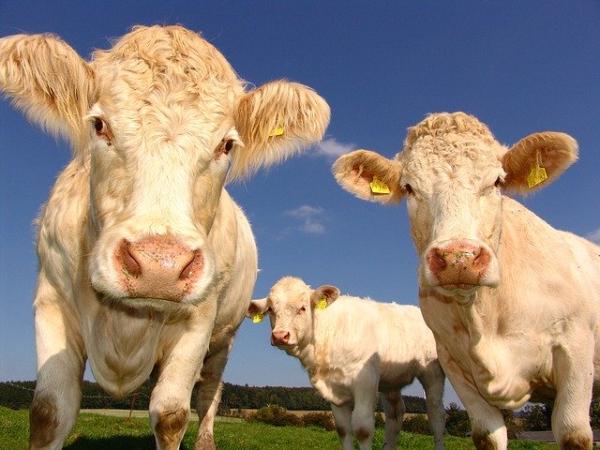Our friend, the telomere
Studies of the nutritional impact of milk, like those of other single foods, are all over the map, some showing benefits, other risks. Researchers have focused, of late, on the fat content of milk, thinking that the devilment is found in that particular fraction. This current study uses a unique biomarker, the length of our telomeres. Telomeres are the “caps” on the ends of our chromosomes, keeping them separate from one another. Over time, those telomeres shorten and lose their protective role. Telomeres are considered a biomarker of cellular as compared to chronological age. Truth be told, chronologic age is a significant factor in telomere shortening, but lifestyle, diet, and even the great villain oxidative stress play a role. [1]
“Although much is understood about diet, oxidative stress, and cellular longevity, the role of cow’s milk consumption, particularly milk fat, remains unclear. To date, the relationship between milk fat intake and telomere length has rarely been studied.”
The study
The researchers made use of our old friend, NHANES, or the National Health and Nutritional Examination Survey, which collected telomere lengths as part of a national sample between 1999 and 2002. That yielded roughly 7,800 DNA samples as well as information on milk and other nutritional consumption. Telomere length was measured in a scientifically objective and exacting way. Consumption of various foods was measured through self-reporting of whether participants drank milk or used it in their cereal, never, rarely (less than once a week), sometimes (once a week or more), or often (daily or more).
Additionally, they were asked about the fat content of their milk (whole, 2%, 1%, skim, nonfat). Of course, the usual covariant suspects like age, gender, ethnicity, smoking, BMI, and physical activity were also noted.
- 60% of adults drink regular, “high fat,” milk, 10% drink 1% milk, 17% drink nonfat milk, and 13% drink no milk.
- Telomere length varied inversely with age, as expected, reducing by about 15 base-pairs per each additional year.
- Telomere length did not vary based on the frequency with which anyone drank any form of milk
- Telomere length did change based upon which milk was being consumed. Regular milk drinkers had shorter telomeres than low-fat milk drinkers who, in turn, had shorter telomeres than milk abstainers.
For those mathematically inclined and who like a good scare, the reduction in the base-pairs was about 69, meaning that drinking whole milk would add 4+ years to your chronologic age. So you might come away with the belief that whole milk isn’t going to kill you outright, but it will age you. But wait, there is a bit more data to consider.
- Nonfat milk drinkers consumed less dietary fat, including saturated fats than any other group; regular milk drinkers consumed more dietary fat. Same for fiber with those nonfat milk drinkers consuming more fiber, regular milk drinkers less.
Fiber intake is associated with longer telomeres, as is the consumption of less dietary fats. So it is hard to implicate milk as the only nutritional factor at play here. The authors write:
“Some of the dietary differences revealed among the milk fat groups were likely due to the milk composition differences that exist across the milk fat categories. However, it is possible that other dietary differences account for some of the biological aging differences among the milk fat categories. ….
Apparently, if total saturated fat intake is low, the amount of milk fat consumed matters little and does not relate to biological aging. However, when total saturated fat intake is high (or moderate), milk fat consumption plays a significant role in cellular aging and telomere length.”
We are left with a true, true, but not necessarily related conclusion. Whole milk consumption does reduce telomere length, whether that “ages” you is a different conversation. But whole milk consumption is a marker of high-fat consumption overall, so to say that milk is the underlying culprit is problematic. And that, in a nutshell, is the great difficulty of nutritional studies, we eat a variety of things, and it is the interaction and aggregation of them that may play a role. There is no one “superfood,” and there is no one “superfood villain.
[1] Oxidative stress is related to mitochondrial “leakage” and subsequent oxidation and is the misunderstanding underlying the prescription of specific “anti-oxidants” to retard aging.
Source: Milk Intake and Telomere Length in US Women and Men: The Role of Milk Fat Fraction Oxidative Medicine and Cellular Longevity DOI: 1155/2019.1564021




